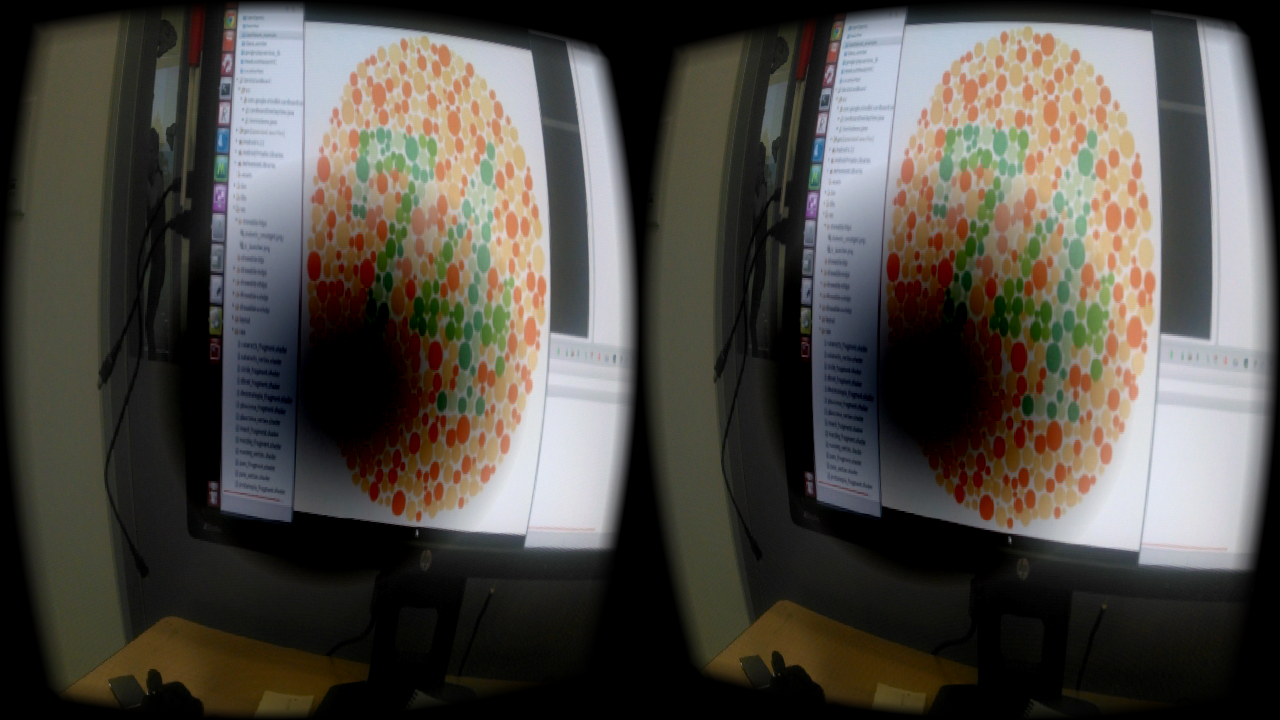It's hard to appreciate the feeling of living with a visual impairment if you haven't experienced it yourself. The edge-blurring of glaucoma or the clouded, fogged-up vision of a cataract, or even the confusing hue-challenged sights of a colorblind person may register on an intellectual level with somebody who has normal vision, but few really "get it" because it's too alien to them. SIMVIZ aims to fix that by attaching a wide-angle camera to a virtual reality headset, to filter the world around you according to any of six visual impairments: colorblindness, glaucoma, cataracts, diabetic retinopathy, double vision, and macular degeneration.
The current version uses an Oculus Rift with a PlayStation 4 camera mounted to its front at eye level. The PlayStation camera's two lenses stream two 1280 x 800-resolution, 60 frame-per-second video feeds to the Rift headset by way of software that combines them into a suitable format and applies filters to the images. Your vision is then filled with a pixellated version of the real world according to one of the impairments, made to feel lifelike thanks to the Rift's 110-degree diagonal and 90-degree horizontal field of view.
It's not the first tool for simulating visual impairments. Others use shutter glasses and a stereoscopic 3D screen or a simple software solution on your computer or smartphone. One is similar to SIMVIZ, albeit with a less sophisticated head-mounted display and low-resolution black-and-white images. But SIMVIZ co-creator Eelke Folmer, a researcher at the University of Nevada, Reno, says that these all suffer from significant problems, be it in terms of cost, accuracy, immersion, or some combination of the three.
"Last year I had the opportunity to try out the Oculus Rift," he tells Gizmag, "and I was blown away by how immersive it is due to its large field of view." It's also relatively low cost, at US$350 for a development kit and a targeted US$200-400 for the upcoming consumer model.

Folmer and his team thought it perfect for developing the initial version of SIMVIZ, which is intended to help interface and web designers as well as carers and anyone who knows one of the millions who suffer from a visual impairment (more than 24.4 million Americans have cataracts, for instance).
"I demoed our simulator at a conference recently," Folmer says, "and overall I think people really liked trying SIMVIZ – especially the colorblind simulation seems to make a big impression."
But for the public version, they're planning to go with a cheaper alternative: Google Cardboard. Pre-made Google Cardboard headsets cost around $15 and they need only an Android or iOS device to work, which makes it the perfect low-cost setup for an immersive visual impairment simulator. Folmer says he's trying to get funding to adapt SIMVIZ for Cardboard, which he believes will be able to provide a reasonable approximation of all major impairments except for double vision (because there's only one camera).
SIMVIZ will be presented at the Ninth International Conference on Tangible, Embedded and Embodied Interaction (aka TEI 2015) in January. A paper describing the research is available from the SIMVIZ project page, linked below.
The following video shows how SIMVIZ works.
Source: SIMVIZ








